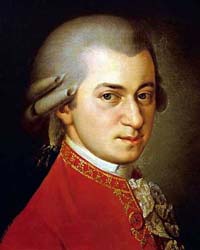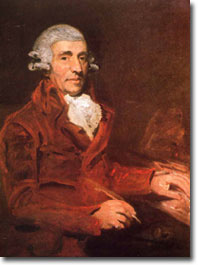Listed below in the 1822 collection published in Boston
are tunes
(VIENNA and GERMANY) credited to
Beethoven:


.jpg)
From the tunebook collection of the Center for American Music Preservation

Ludwig van Beethoven (1770-1827)
The works listed below are in the chronological sequence of their first performances in Boston, Massachusetts.
The information below was compiled by musicologist and composer, Roger Lee Hall,
from H. Earle Johnson's excellent reference book,
First Performances in America to 1900: Works with Orchestra (1979).

Boston Music Hall in 1852
First Performances in Boston
Overtures performed in Boston between 1841 and 1870:
Overture: Fidelio in E, Op. 72 (Vienna; 1814)
13 Feb 1841, Academy of Music, Henry Schmidt, condcutor
Follow the score -- click here
...one of those compositions which are difficult to understand unless performed by a master orchestra,.
like that of the Paris Opera, and we do not wonder if, although our orchestra played it in their best style, some among the audience were not satisfied with the piece.
-- Hach's Musical Magazine, Feb 18.
Overture: Egmont, op. 84 (Vienna, 1810/ published: 1811)
16 Nov 1844, Academy of Music, George J. Webb, conductor
We waited with trembling expectation for Beethoven's Overture to begin; so powerful a hold had it acquired upon us in a mere piano-forte arrangement, that to hear it announced for a full orchestra was like hearing that the friend had arraived whose great soul you had long owned and loved through letters. It could not be but grand, however poorly performed, to one already imbued with it. What a perfect overture! how truly Egmont, and how thoroughly Beethoven's! O! for a performance worthy of it. We were disappointed; the public, of course, were disappointed, who depended on the performance wholly for their conception of the piece. What a nightmare it gave one, to sit amid a dead, indifferent multititude, when music so intense, so deep, so grand, so crowded with the hurry and the passion of life was actually being performed!
-- J.S. Dwight, The Harbinger, 9 Aug. 1945.
Overture: Creatures of Prometheus, op. 43 (Vienna: 1801/published, 1802)
28 December 1844, Academy of Music, George J. Webb, conductor
Overture: Leonore in C, No. 3, op. 72 (Vienna: 1806)
7 Dec 1850, Musical Fund Society, George J. Webb, conductor
Overture: Coriolanus, op. 62 (Vienna, 1807/published: 1808)
19 Apr 1851, Grand Symphony Concert - C.C. Perkins, conductor
First performance in America
Overture in C: Consecration of the House, op. 124 (Vienna, 1823)
3 Mar 1860, Philharmonic Society, Carl Zerrahn, conductor
2King Stephen
We always suspect the first performance of the minor compositions of great writers; feelinmg inclined to believe that, were they worthy of their authors, the first time would have taken place before. This overture has not the profundity of his more celebrated ones; but it contains many passages which are suggestive of his better known writings -- Boston Musical Times, Mar. 10
Overture: Leonore in C, No. 1, op. 72 (published: 1844)
10 Nov 1860, Harvard Musical Association, Carl Zerrahn, conductor
Our feeling is that this No. 1 stands by itself, a thing complete and lovely, the product of a deep, sweet and tender feeling.
--Dwight's Journal, Dec. 3
Overture in C: Name Day, op. 115 (Vienna, 1815, published 1825)
4 Nov 1869, Harvard Musical Association, Carl Zerrahn, conductor
Overture: King Stephen , op. 117 (1812/published: 1826)
14 Oct 1870, Thomas Orchestra
A slight patchwork (for Beethoven) of what seems to be Hungarian themes, yet very bright and pleasing.
-- Dwight's Journal, Oct. 22

Boston Symphnoy Orchestra with Beethoven statue in 1891 picture (BSO archives)
Symphonies performed in Boston between 1841 and 1853:
Symphony No. 1 in C, opus. 21 (1800/score: 1820)
First performance in America: 11 Feb. 1841 - German Society of New York, Uriah Corelli Hill, conductor
First performance in Boston: Odeon, 13 Feb. 1841,
The Academy of Music, Henry Schmidt, conductor
Follow the score -- click here
... the master reminds us of his two great predecessors, Haydn and Mozart, only thast he is more delicate, was very well performed, and leader and orchestra deserve credit for the spirit in which. particularly, the Andante was perfromed. The exquisite delicacy of this piece, its light elastic step, was well given, without either losing character or distinctiveness, or accelerating the time. --
--
Theodore Hach's Musical Magazine, Feb. 20
Symphony No. 2 in D, op. 36 (1803/score: 1820)
12 November 1842, Odeon,
Academy of Music, George J. Webb, conductor
Symphony No. 3 in Eb (Eroica), op. 55 (1805/score: 1820)
5 May 1849, Tremont Temple, Musical Fund Society, George j. Webb, conductor
Symphony No. 4 in Bb, op. 60 (1809/score: 1821)
8 December 1849,
Melodeon, Musical Fund Society, George J. Webb, conductor
Symphony No. 5 in c, op. 67 (1808/score: 1826)
3 April 1841,
Odeon, Academy of Music, Henry Schmidt, conductor
Symphony No. 6 in F (Pastorale), op. 68 (1808)
15 January 1842,
Odeon, Academy of Music, Henry Schmidt, conductor
It does not require depth in the life of the hearer but only simplicty to feel its beauties
-- John Sullivan Dwight, The Dial, 1843
Symphony No. 7 in A, op. 92 (1813/score: ca. 1816)
25 Nov 1843,
Odeon, Academy of Music, Henry Schmidt, conductor
Symphony No. 8 in F, op. 93 (1814/1816)
14 Dec 1844, Odeon, Academy of Music, Henry Schmidt, conductor
Symphony No. 9 in d, op. 125 (1824)
5 Feb. 1853, Music Hall, Handel and Haydn Society with Germania Society,
Carl Bergman and Carl Zerrahn, conductors
The NINTH SYMPHONY, last Saturday night, was truly a triumph...Why was this? It was partly no doubt owing to a strong predisposition in the large and controlling nucleus of a Boston musical audience, - a predisposition founded on good experience - to be interested in anything that bears the name of Beethoven. The symphony did its work that night. -- Dwight's Journal, Feb. 12
Concertos for Piano and Violin performed in Boston between 1842 and 1868:
Concerto for Piano No. 1 in C, op. 15 (Vienna, ca. 1800/published, 1801)
Boston, Music Hall, 16 Jan. 1868,
Harvard Musical Association, Carl Zerrahn, conductor
Benjamin J. Lang, piano; cadenza by Moscheles
Follow the score -- click here
There is abundant opportunity for the player to show his good taste, ease, and reserve power, the subjection of deft, thoroughly practiced hands to espression, all of which Mr. Lang eminently did show. It was a most elegant and happy rendering of a charming composition with which all were glad to have made acquaintance. -- Dwight's Journal, Feb. 11
Concerto for Piano No. 2 in Bb, op. 19 (Vienna, 1795/published, 1801)
Boston, Music Hall, 1 Feb 1867
Harvard Musical Association, Carl Zerrahn, conductor
Benjamin J. Lang, piano; cadena by Moscheles
...the Beethoven which is commonly and justly supposed not to rank with the three greater concertos which he composed afterwards...the Rondo finale is quaint and piquant, is full of vitality and became electric under Mr. lang's touch. This, too is Mozart; it makes you seem to hear the 'Don Juan' music; but unmistakable Beethoven is never far off. -- Dwight's Journal, Feb. 16
Concerto for Piano No. 3 in c, op. 37 (Vienna, 1803/published, 1804)
Boston, Tremont Temple, 8 Dec 1842
Germania Musical Society, Carl Bergmann, conductor
J.L. Hattan, piano
Concerto for Piano No. 4 in G, op. 58 (Vienna, 1807/published, 1808)
Boston, Odeon, 4 Feb 1854
Germania Musical Society, Carl Bergmann, conductor
Robert Heller, piano
We gathered enough from the performance to convince us of its rare beauty, depth, fertility of musical invention, logical development, effective contrast and yet true intimate relationship in its different movements -- in short, all of the great Beethoven characterisitics.
But Mr. Robert Heller was not up to that kind of work; his rendering was mechanical and lifeless.-- Dwight's Journal, Feb. 11
Concerto for Piano No. 5 in Eb (Emperor), op. 73 (Leipzig, 1810/Vienna, 1812)
Boston, Music Hall, 4 Mar 1854,
Germania Musical Society,
Carl Bergmann, conductor
Robert Heller, piano.
How soon it opened up new wonders, deep after deep, of quite another individuality...you felt in the strong and nervous grasp of Beethoven, magnetically thrilled with his great restless aspirations and prophetic moods, and reeling with his fine Bacchus frenzy...it seemed finely rendered; certainly on the part of the orchestra; and Mr. Heller marched through the difficulties of the piano part with ease and steadiness, rendering the letter faithfully, if not the spirit, of a music for which he never seems to have sympathetic fire or delicacy, or sense of light and shake enough...No Concerto, we are sure, was ever listened to with such delight in Boston as this Fifth by Beethoven, -- Dwight's Journal, Mar. 18
Fantasia for Piano, Chorus and Orchestra in c, op. 80 (Vienna, 1808/ published, 1811)
Boston, Melodeon, 23 Dec 1848,
Handel and Haydn Society with Musical Fund Society, George J. Webb, conductor
J.F. Hatton, piano
First performance in America
Concerto for Violin in D, op. 61 (Vienna, 1806/ published, 1809)
Boston, Melodeon, 22 Nov 1853, Mendelssohn Quintette Club,
August Fries, violin - First movement only
Choral Works between 1853 and 1897:
Oratorio: The Mount of Olives, op. 85 (Vienna, 1803/published; 1811)
Boston, Melodeon, 6 Feb 1853
Handel and Haydn Society, with Germania Musical Society, Carl Bergman, conductor
First performance in America
However righteous the cause, the performance was nearly rained out and receipts totaled $125.50. On the previous evening Boston had heard the Ninth Symphony for the first time. -- H. Earle Johnson, Hallelujah, Amen!
Mass in C, op. 86 (published, 1812)
Boston, Cathedral, 25 Dec 1856
Choir of Catholic Cathedral with orchestra
Missa Solemnis in D, op. 123 (published, 1827)
Boston, Music Hall, 12 Mar 1897
Cecilia Society, Members of Boston Symphony orchestra, B.J. Lang, conductor
First performance in Boston
See also these composers and
first performances of their music in Massachusetts:

W.A. Mozart

